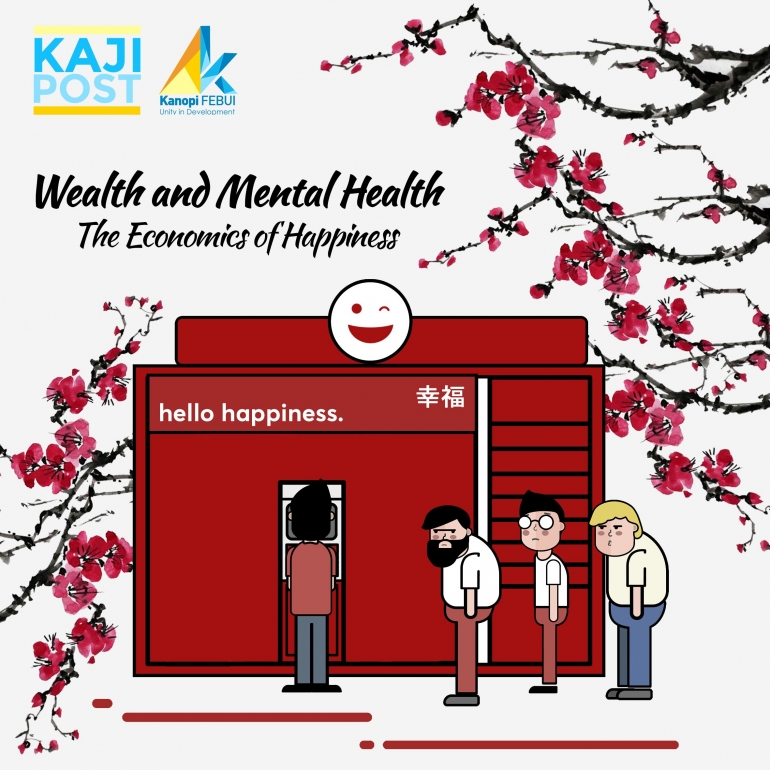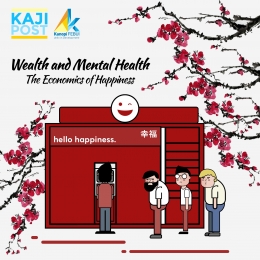Being brought up from time to time by people we consider wise and well-off. Assuming that we are people who would be better off with more money in our pockets; more often than not, we are skeptical about whether this saying holds some truth to it. However, after learning the cases of South Korea and Japan, it is safe to say that the adage is indeed true to some extent and that it is time for us to take care of our mental health as well that of those around us. Rather than maximizing income, we need to maximize the well-being of our society; this is the aim of the economics of happiness.
By Rosalia Marcha Violeta | Economics 2018 | Trainee of Studies Division Kanopi FEB UI 2018
References:
Mankiw, G. N. (2016). Principles of Economics Eighth Edition. Harvard University.
Kishtainy, N., Abbot, G., Farndon, J., Kennedy, F., Meadway, J., Wallace, C., Weeks, M. (2012). Big Ideas Simply Explained: The Economics Book. DK Publishing.
Durkheim, . (1952). Suicide: A Study in Sociology. The Free Press.
Chang, S.-S., Gunnell, D., Sterne, J. A. C., Lu, T.-H., & Cheng, A. T. A. (2009). Was the economic crisis 1997--1998 responsible for rising suicide rates in East/Southeast Asia? A time--trend analysis for Japan, Hong Kong, South Korea, Taiwan, Singapore and Thailand. Social Science & Medicine, 68(7), 1322--1331. doi:10.1016/j.socscimed.2009.01.010
Andrs, A. R., Halicioglu, F., & Yamamura, E. (2011). Socio-economic determinants of suicide in Japan. The Journal of Socio-Economics, 40(6), 723--731. doi:10.1016/j.socec.2011.08.002
Kim, K., Ryu, E., Chon, M.-Y., Yeun, E.-J., Choi, S.-Y., Seo, J.-S., & Nam, B.-W. (2006). Internet addiction in Korean adolescents and its relation to depression and suicidal ideation: A questionnaire survey. International Journal of Nursing Studies, 43(2), 185--192. doi:10.1016/j.ijnurstu.2005.02.005
Chen, J., Choi, Y. J., & Sawada, Y. (2009). How is suicide different in Japan? Japan and the World Economy, 21(2), 140--150. doi:10.1016/j.japwor.2008.06.001
Hamermesh, D. S., & Soss, N. M. (1974). An Economic Theory of Suicide. Journal of Political Economy, 82(1), 83--98. doi:10.1086/260171











